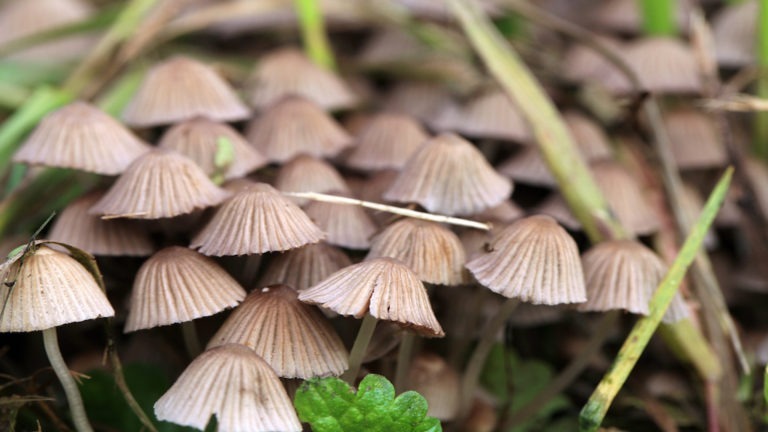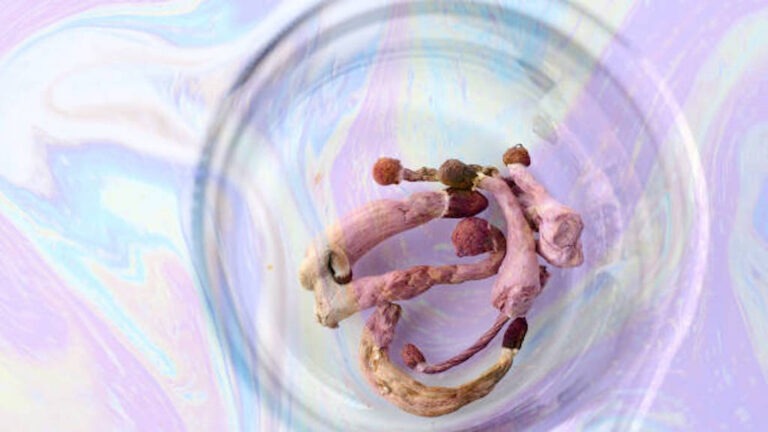Oregon Moves to Legalize Magic Mushrooms With 2020 Ballot Measure

The state of Oregon will soon vote on a ballot initiative to legalize psilocybin, the psychoactive ingredient in “magic” mushrooms, in a 2020 election. If passed, the measure would decriminalize possession, allow administration from licensed professionals, legalize the manufacture and delivery, and create a regulatory program for its clinical use.
The measure comes in the wake of widespread legalization and decriminalization of state laws related to cannabis, as well as a multitude of government-sanctioned studies exploring the use of psychedelics to treat depression, PTSD, drug addiction, and chronic headaches.
In addition to changes in the social and political climate surrounding these substances, public health regulatory agencies are starting to recognize the clinical benefits of psychedelics, including the FDA which recently gave psilocybin breakthrough therapy status for treatment-resistance depression, meaning it will expedite development and approval processes for the drug’s use.
This recent wave of legalization marks a progressive turning point, after decades of oppressive and inane drug laws that have filled prisons (many of which are private and for profit), spawned opioid epidemics, and unfairly targeted minorities. And now it appears that the tides are slowly turning, potentially leading to a day when medical professionals can precisely and sensibly utilize an ancient plant medicine with healing potential.
Psilocybin is currently Schedule I – the same classification as drugs like cocaine and heroine – but if passed, the amendment would move to reclassify it as Schedule IV, the same as anti-anxiety medications such as Xanax. However, the drug could only be administered by a professional in a clinical setting and patients would remain in that setting until the effects of the drug wore off.
Oregon is not the only state attempting to legalize psilocybin as similar ballot measures are being proposed in certain California cities, as well as Denver, CO. However, Oregon is now the first state to attain the required number of signatures for the measure to make the 2020 ballot.
The Oregon measure is being headed by Tom and Sheri Eckert, two psychotherapists practicing in the Portland area, who also founded the Oregon Psilocybin Society.
“A growing body of evidence demonstrates that psilocybin assisted therapy is safe and uniquely effective. We think that this novel approach could help alleviate the mental health crisis here in Oregon by addressing costly epidemics like suicide, treatment-resistant depression and anxiety, PTSD, and addiction to drugs, alcohol, and nicotine. Additionally, the measure would open doors for new research, create access to services for those interested in personal development, and reduce penalties for common possession of psilocybin,” — PSI Chief Petitioners Tom and Sheri Eckert
A number of government-sanctioned clinical trials with psilocybin and other psychedelic substances have proven successful recently, particularly by researchers at Johns Hopkins and London’s Imperial College, for treatment of PTSD, depression, and drug addiction. In one breakthrough study headed by Dr. Robin Carhart-Harris, psilocybin was found to flip a “reset” mechanism in the brains of patients experiencing treatment-resistant forms of depression.
His work, as well as that of Dr. Roland Griffiths, has made drastic steps forward in the field of psychedelic therapy, opening up new modalities for patients who have exhausted all pharmaceutical options in treating severe mental illnesses.
Further anecdotal evidence has been found for the use of psilocybin in treating cluster headaches and chronic migraines. In fact, there is evidence that Albert Hoffman – the eminent discoverer of LSD-25 – was researching psilocybin as a potential treatment for headaches before it was criminalized in 1968.
For more on the history and use of psilocybin check out this episode of Psychedelica :
Study Shows Microdosing Psilocybin Boosts Mood, Mental Health

A new study provides the most compelling evidence to date on the impressive mental health benefits of microdosing psilocybin.
While there has been an ever-increasing number of studies showing the efficacy of treatment of mental health disorders with psychedelics, there has been relatively little research on the practice of microdosing.
Microdosing, or repeatedly taking small, barely perceptible amounts of psychedelics, has been exponentially increasing in popularity, with a wide range of people reporting a multitude of improvements to their psychological wellbeing.
The latest scientific study to look at the effects of microdosing was conducted by researchers at the University of British Columbia, as well as other leaders in the fields of psychology and mycology. The study followed 953 people who used small, repeated doses of psilocybin for about 30 days, as well as a control group who did not microdose.
While the exact dosages of psylocibin that participants self-administered varied somewhat, they were all low enough to not impact daily functioning.
Over a one-month period, participants took these psylocibin microdoses three to five times per week and were asked to complete a number of assessments through a smartphone app that tracked their mental health symptoms, mood, and measures of cognition. The findings definitively showed that the microdosing participants demonstrated greater improvements in mood and mental health than those in the non-microdosing control group.




































